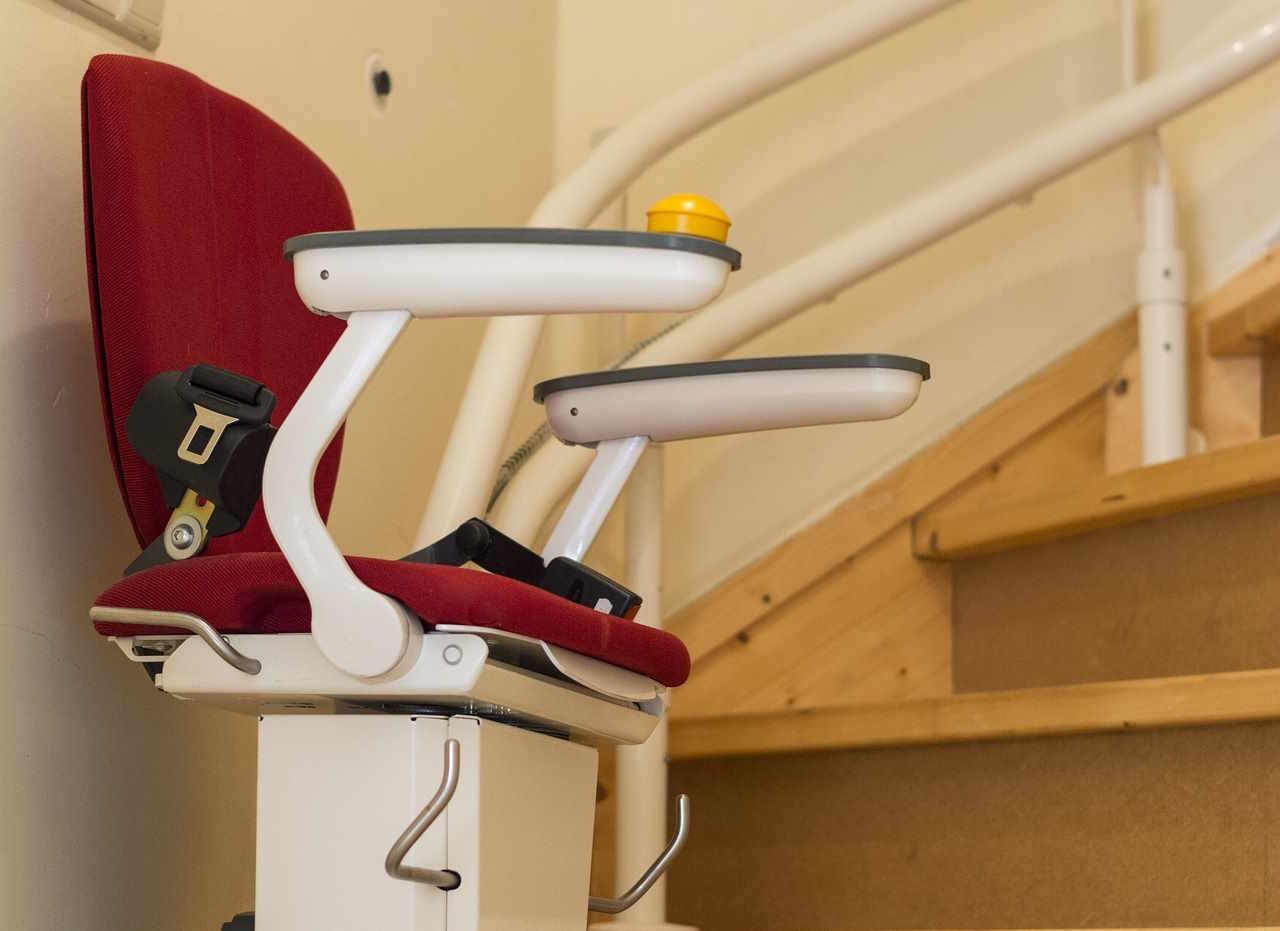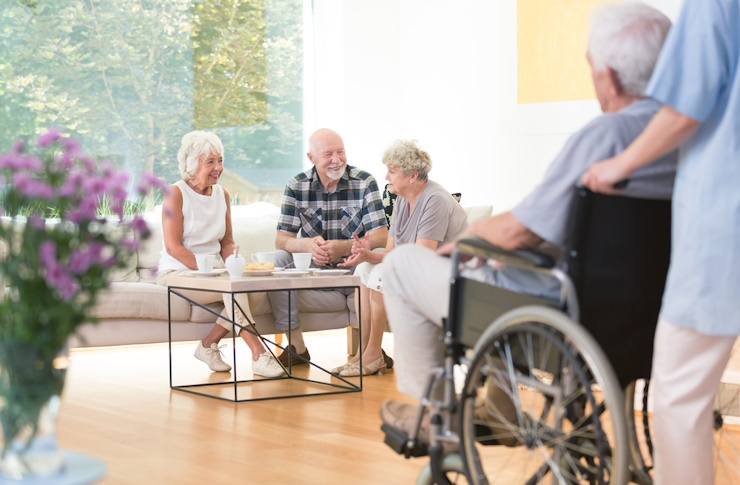Mobile Stair Lifts Without Installation: Safe, Simple, and Ready to Use
For many people with limited mobility, stairs can be a daily challenge. Whether due to age, injury, or a health condition, navigating up and down steps isn’t always safe — or even possible. That’s where mobile stair lifts without installation come in.

How Mobile Stair Lifts Are Making Homes More Accessible Instantly
Mobile stair lifts represent a significant advancement in home accessibility technology. Unlike traditional stairlifts that require professional installation, structural modifications, and permanent fixtures, mobile versions can be deployed within minutes of delivery. These portable devices typically consist of a motorized chair or platform that can safely transport individuals up and down staircases.
The immediate accessibility factor makes mobile stair lifts particularly valuable in several scenarios. For those experiencing temporary mobility challenges due to surgery or injury, these devices offer a short-term solution without permanent home modifications. Families caring for aging parents who visit regularly but don’t live full-time in the home can quickly set up the lift when needed. Additionally, people who rent their homes and cannot make permanent structural changes find mobile options to be the perfect compromise for maintaining independence.
No Installation Needed: Simple Mobility Solutions for Everyday Living
The absence of installation requirements makes mobile stair lifts remarkably user-friendly. Most models operate on rechargeable battery systems, eliminating the need for complex electrical wiring. The setup process typically involves positioning the device at the bottom of the stairs, ensuring it’s properly aligned with the staircase, and engaging the safety features.
These systems are designed with simplicity in mind. Many feature intuitive controls that can be operated by individuals with minimal technical knowledge. The portable nature also means they can be stored away when not in use, maintaining the home’s aesthetic appearance. This proves especially valuable in multi-generational households where not everyone requires mobility assistance all the time.
For caregivers, the simplicity translates to reduced physical strain. Rather than helping individuals navigate stairs manually—which poses safety risks for both parties—the mobile stair lift provides a secure transportation method without the permanence of installed models.
Safe and Portable Stair Lifts That Seniors Can Use Right Away
Safety remains the paramount concern when addressing mobility challenges, and mobile stair lifts incorporate numerous features to ensure user well-being. Most models include safety belts, emergency stop buttons, obstacle detection systems, and stable bases that prevent tipping. Battery indicators alert users when recharging is necessary, preventing potential stalling during use.
The portability aspect doesn’t compromise safety—in fact, many mobile lifts utilize advanced stabilizing technology to ensure secure operation on various staircase designs. Anti-slip surfaces, handrails, and clear operational instructions make these devices appropriate for seniors living independently.
What distinguishes these systems is their immediate readiness. Unlike permanent stairlifts that may require weeks between ordering and installation completion, portable options can be delivered and operational on the same day. This immediacy proves crucial for individuals recently discharged from medical facilities or those experiencing sudden mobility changes.
The Easy Way to Improve Home Accessibility Without Renovations
Home modifications typically involve construction, disruption, and significant expense. Mobile stair lifts circumvent these challenges by providing accessibility without structural changes. This approach preserves the home’s original architecture and character while adding functionality.
For historic homes where modifications might be restricted or architecturally undesirable, portable lifts offer a non-invasive solution. Similarly, in homes with unusual staircase configurations that would make traditional stairlift installation difficult or impossible, mobile options can navigate these unique layouts more adaptably.
The non-permanent nature also makes these devices suitable for seasonal use. Individuals who experience mobility fluctuations due to conditions like arthritis or multiple sclerosis can deploy the lift during symptom flare-ups and store it when mobility improves.
Why More Families Are Choosing Mobile Stair Lifts for Loved Ones
The decision to incorporate mobility solutions often involves entire families, particularly when considering options for aging parents or relatives with disabilities. Mobile stair lifts have gained popularity among families for several practical reasons. The non-permanent nature means families don’t need to commit to structural changes that might affect home value or aesthetics. The portability allows the device to travel with the individual between residences, making visits to family members’ homes more accessible.
From a financial perspective, mobile options often present a lower initial investment compared to permanent installations. Additionally, they can be resold or repurposed when no longer needed, providing value retention that permanent modifications typically lack.
Mobile Stair Lift Options and Cost Considerations
The market offers various mobile stair lift models with different features and price points to accommodate diverse needs. Understanding these options helps families make informed decisions based on specific requirements and budget constraints.
| Model Type | Average Cost Range | Key Features | Suitable For |
|---|---|---|---|
| Battery-Powered Climbing Chairs | £2,500-£4,000 | Rechargeable batteries, foldable design, remote control | Straight staircases, independent users |
| Track-Based Portable Lifts | £3,000-£5,500 | Removable tracks, higher weight capacity, smoother ride | Various staircase designs, users needing caregiver assistance |
| Platform Mobile Lifts | £4,000-£7,000 | Accommodates wheelchairs, larger platforms, enhanced stability | Wheelchair users, those with more significant mobility challenges |
| Economy Models | £1,800-£2,800 | Basic features, manual components, simpler controls | Temporary use, budget-conscious buyers, simpler staircases |
| Premium Portable Systems | £5,000-£8,000 | Advanced safety features, higher speed, extended battery life | Long-term use, complex staircases, user comfort priority |
Prices, rates, or cost estimates mentioned in this article are based on the latest available information but may change over time. Independent research is advised before making financial decisions.
The rental market for mobile stair lifts has also expanded, with monthly rates typically ranging from £80-£300 depending on the model and rental duration. This option proves economical for short-term needs or those wishing to test a system before purchasing.
Conclusion
Mobile stair lifts represent a significant advancement in accessibility technology, offering immediate solutions without the permanence and disruption of traditional installation. These devices balance safety, convenience, and practicality while addressing the diverse needs of individuals with mobility challenges. As awareness of these alternatives grows, they continue to evolve with enhanced features and greater affordability, making independence more achievable for everyone, regardless of architectural constraints or living situations.




